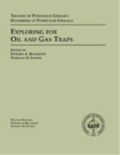Difference between revisions of "Source rock richness"
Jump to navigation
Jump to search
FWhitehurst (talk | contribs) |
|||
| Line 14: | Line 14: | ||
| isbn = 0-89181-602-X | | isbn = 0-89181-602-X | ||
}} | }} | ||
| − | Source rock richness is determined by measuring the total organic carbon (TOC) present in a rock. The two most common techniques of analyzing a rock for TOC are Rock-Eval pyrolysis with TOC and the LECO method. Conventional well logs can also provide information for evaluating interval richness. | + | [[Source rock]] richness is determined by measuring the total organic carbon (TOC) present in a rock. The two most common techniques of analyzing a rock for TOC are Rock-Eval pyrolysis with TOC and the LECO method. Conventional well logs can also provide information for evaluating interval richness. |
| + | |||
| − | |||
* [[Measuring a rock's ability to generate hydrocarbons]] | * [[Measuring a rock's ability to generate hydrocarbons]] | ||
Revision as of 20:11, 16 April 2014
| Exploring for Oil and Gas Traps | |

| |
| Series | Treatise in Petroleum Geology |
|---|---|
| Part | Critical elements of the petroleum system |
| Chapter | Evaluating source rocks |
| Author | Carol A. Law |
| Link | Web page |
| Store | AAPG Store |
Source rock richness is determined by measuring the total organic carbon (TOC) present in a rock. The two most common techniques of analyzing a rock for TOC are Rock-Eval pyrolysis with TOC and the LECO method. Conventional well logs can also provide information for evaluating interval richness.
- Measuring a rock's ability to generate hydrocarbons
- Using pyrolysis to estimate richness
- Using the LECO method to estimate richness
- Using conventional well logs to estimate richness